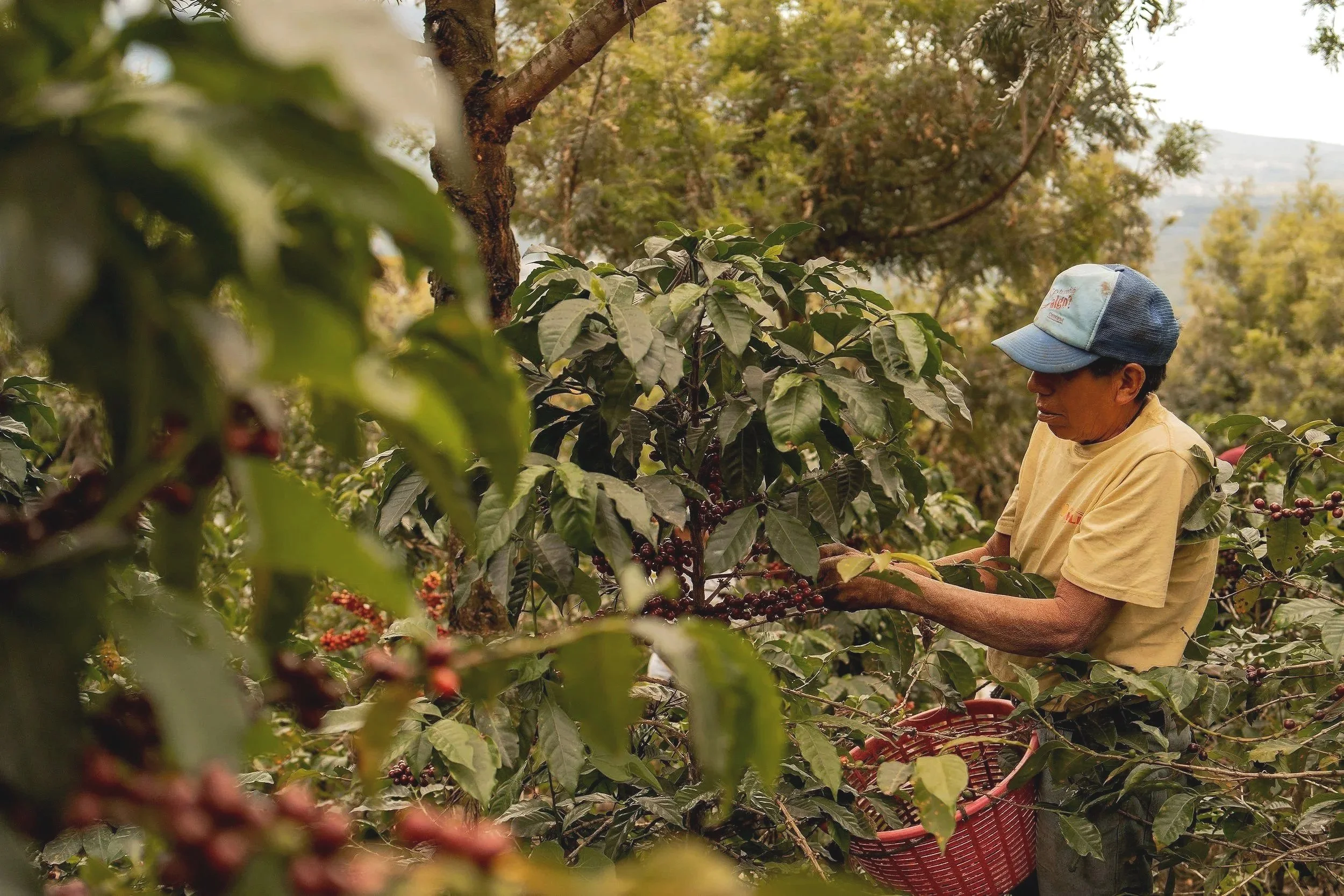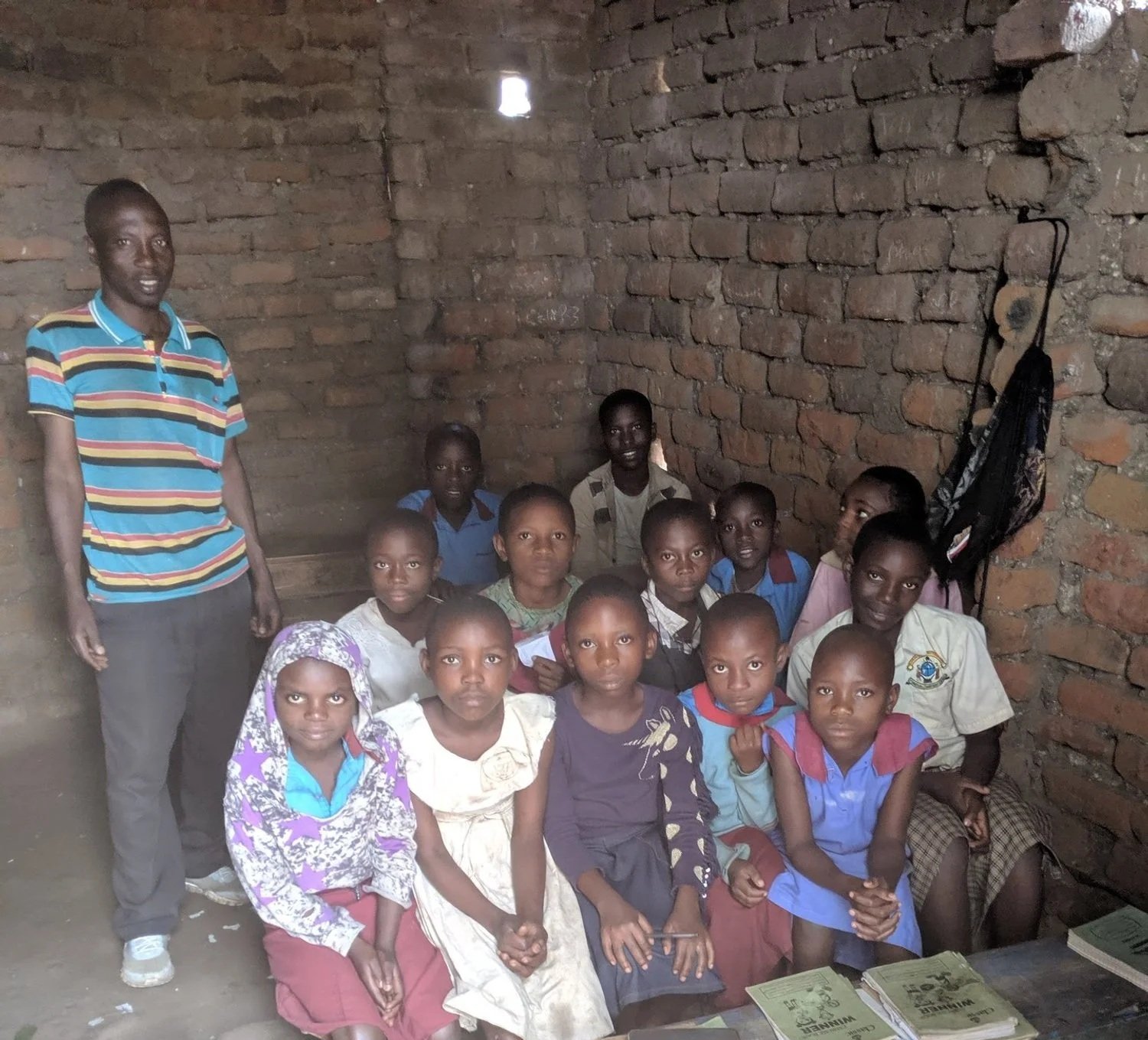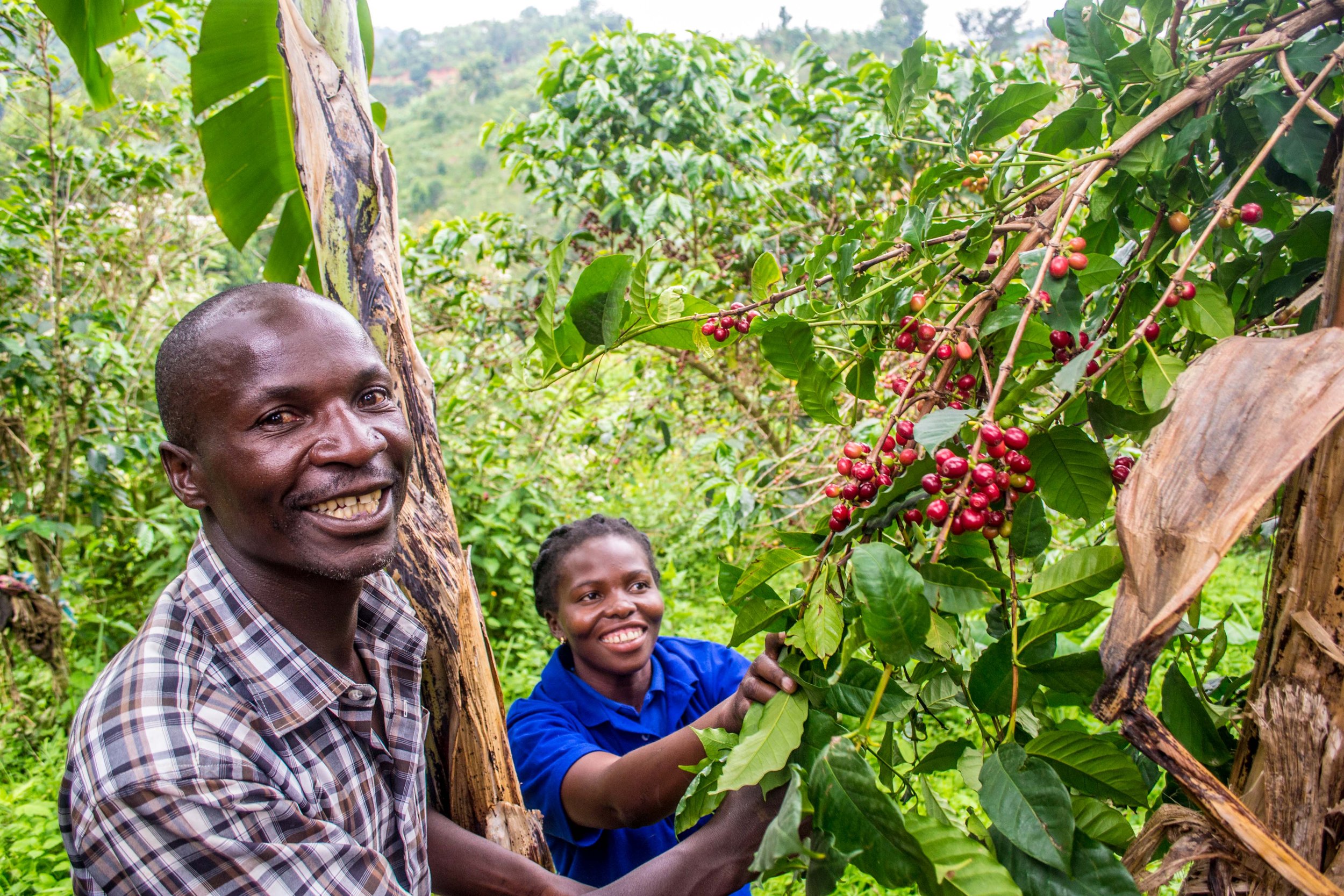
“We are BIG on sustainability, working closely with coffee roasters and farmers who grow our beans with respect for both people and the planet”
We partner closely with a passionate local coffee roaster who shares our commitment to quality, sustainability, and ethical sourcing. Together, we carefully select and roast premium coffee beans to ensure every cup meets the highest standards of flavour and freshness.
Our beans are sourced directly from farmers in Uganda, where our roasting partner works with smallholder growers to support responsible farming practices and fair trade. This relationship not only guarantees traceability and transparency but helps improve the livelihoods of farming communities through better wages, education, and sustainable agricultural training.
By choosing our coffee, you're not just getting an exceptional coffee — you're supporting a global supply chain that values people, planet, and purpose.
Our Coffee Blends
-

Amatsa Bold
Amatsa Bold is a premium coffee blend sourced from the highlands of Uganda. This is a dark-roast, blend of Ugandan coffees. 100% Arabica. With flavour notes of milk chocolate, caramel and pecan.
Strength: 4/5
-

Amatsa Classic
Amatsa Classic is a dark-roast, single origin Ugandan coffee. 100% Arabica. This coffee bean boasts a rich, velvety flavour with delicate notes chocolate and a subtle hint of nuts, perfect for a refined and enjoyable coffee.
Strength: 3/5
-

Amatsa Decaf
Amatsa Decaf offers all the rich flavour of our Ugandan single-origin coffee—without the caffeine. This smooth, well-balanced blend is a medium-roast coffee. With flavour notes of milk chocolate, pear and peanut.
Strength: 3/5
10p from every bag purchased goes towards supporting farmers we work with in Uganda
Our Partners Work in Uganda
Alex Thabulenga’s Story
In Uganda, access to education isn’t guaranteed — families are required to pay school fees, which makes formal education out of reach for many, especially in low-income rural communities. For countless children, this means growing up without the chance to attend school.
Alex Thabulenga, Head Teacher at Holy Trinity Primary School in Kyempara, is determined to change that. Thanks to his vision and perseverance, more than 80 disadvantaged children who would otherwise have missed out now have access to quality education.
When our partner first connected with Alex, the school was little more than a basic structure. At his request, they helped support the renovation of the classrooms, creating a more inspiring and functional space for learning. But Alex’s impact goes far beyond the physical improvements.
He has transformed the educational experience from within — introducing a practical, skills-based curriculum that not only covers the academic essentials but also equips students with tools they can use to secure future employment.
Alex’s ultimate goal is to help break the cycle of poverty in the region. Through the school, he encourages the wider community to adopt sustainable farming practices — particularly in coffee cultivation. By improving the quality of coffee grown locally, families can earn more income and build more secure futures.
Holy Trinity Model Primary School recognises the vital role that coffee plays in the local economy. The school’s approach combines education with environmental stewardship, helping to develop a new generation of skilled individuals who understand how to work with the land to achieve long-term success.
This is just one of many projects our partners work on in Uganda and through the sales of Ugandan coffee, we can continue to support this incredible work.
Omucheri and Lhwanzo’s Story
Omucheri and Lhwanzo are brothers from Ibanda, a small farming community nestled in the foothills of Uganda’s Rwenzori Mountains. Like many families in the region, their livelihood depends on coffee — sustainably grown, carefully harvested, and deeply tied to the land they call home.
But climate change is threatening that future.
One of the most pressing challenges they face is desertification — the gradual loss of fertile soil, leaving farmland dry and unable to sustain crops. In Uganda, this is largely driven by deforestation, as trees are cut down to meet the daily demand for firewood used in cooking and heating.
To help address this, we’re proud to support our partners who help those like Omucheri and Lhwanzo, alongside other young local entrepreneurs, through a project focused on building and installing energy-efficient stoves. These stoves use up to 50% less firewood, significantly reducing pressure on nearby forests.
So far, more than 30 stoves have been distributed — creating employment opportunities for youth, helping preserve the soil, and slowing deforestation. This practical solution not only helps protect coffee farms from the impacts of climate change but also strengthens the resilience of the wider community.
Through small innovations like this, we’re working together to ensure that farming — and the future of great Ugandan coffee — can thrive for generations to come.






